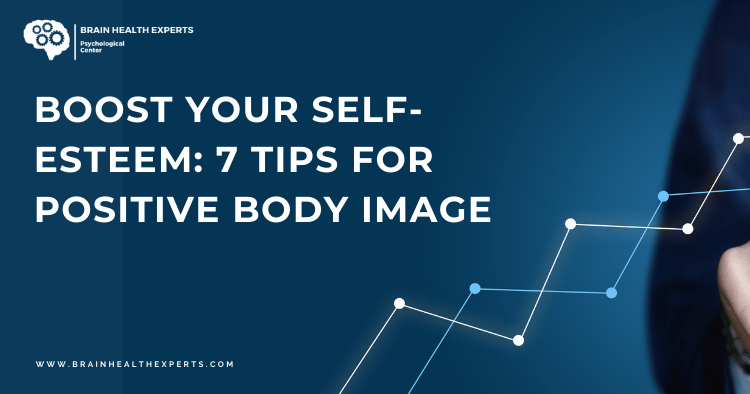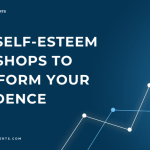Table of Contents
- Understanding Self-Esteem and Body Image
- Practice Self-Compassion
- Surround Yourself with Positivity
- Limit Social Media Exposure
- Engage in Physical Activity
- Dress for Success
- Seek Professional Help When Needed
- Conclusion
Understanding Self-Esteem and Body Image
Self-esteem refers to how we perceive our worth and value as individuals, while body image is our subjective view of our physical appearance. Both concepts are deeply interconnected; a positive body image can enhance self-esteem, while negative body image can lead to feelings of inadequacy and low self-worth. According to the National Institute of Mental Health, dissatisfaction with body image is linked to various mental health issues, including anxiety and depression.
“Your body is not a battleground; it’s a canvas. Paint it with love and acceptance.”
FAQs
What is the difference between self-esteem and body image?
Self-esteem is a broader concept that encompasses our overall perception of self-worth, while body image focuses specifically on how we view our physical appearance.
How can body image affect mental health?
Negative body image can lead to low self-esteem, anxiety, depression, and eating disorders. Conversely, a positive body image can enhance mental well-being and self-acceptance.
Practice Self-Compassion
Self-compassion is the practice of treating yourself with the same kindness and understanding you would offer to a friend. Instead of harsh self-criticism, engage in positive self-talk. Phrases like “I am doing my best” or “It’s okay to feel this way” can make a significant difference in how you perceive yourself.
“Be gentle with yourself. You’re doing the best you can.”
Tips for Practicing Self-Compassion:
- Acknowledge your feelings: Recognize when you’re feeling down about yourself and validate those feelings.
- Reframe negative thoughts: Challenge negative beliefs by finding evidence that contradicts them.
- Engage in self-care: Take time for activities that bring you joy and relaxation.
Resources
For more insight on self-compassion, consider reading Kristin Neff’s website on Self-Compassion.
Surround Yourself with Positivity
The people you surround yourself with can have a profound impact on your self-esteem and body image. Seek relationships that uplift and inspire you rather than those that bring negativity or criticism.
“Surround yourself with those who see the greatness within you, even when you don’t see it yourself.”
Strategies for Building a Supportive Network:
- Identify toxic relationships: Recognize individuals who consistently make you feel inadequate.
- Cultivate positive friendships: Spend time with people who celebrate your achievements and support your growth.
- Join supportive communities: Look for groups, whether in person or online, that promote body positivity and self-acceptance.
Table: Positive vs. Toxic Relationships
| Positive Relationships | Toxic Relationships |
|---|---|
| Uplifting and encouraging | Critical and belittling |
| Supportive during tough times | Draining and negative |
| Celebrates your successes | Jealous and competitive |
Also, consider exploring 10 Ways Positive Thinking Transforms Your Daily Life for further insights on how positivity can enhance your relationships.
Limit Social Media Exposure
In today’s digital age, social media can heavily influence our body image. Constant exposure to curated images can lead to unrealistic comparisons and self-doubt.
“Your worth is not measured by likes or followers. You are enough just as you are.”
Tips for Managing Social Media Use:
- Unfollow negative accounts: Remove accounts that promote unrealistic beauty standards.
- Follow body-positive influencers: Seek out accounts that celebrate diverse body types and promote self-acceptance.
- Set time limits: Allocate specific times for social media use to avoid mindless scrolling.
Resources
For a deeper understanding of the impact of social media on body image, read this article from the American Psychological Association.
Engage in Physical Activity
Engaging in regular physical activity can boost your mood and improve your body image. Exercise releases endorphins, known as “feel-good” hormones, and helps you appreciate your body for what it can do rather than solely how it looks.
“Exercise is not just a tool for weight loss; it’s a celebration of what your body can do.”
Types of Physical Activities to Consider:
- Yoga: Promotes mindfulness and body awareness.
- Dance: A fun way to express yourself and improve your fitness.
- Walking or running: Simple yet effective ways to get moving and clear your mind.
FAQs
Do I need to lose weight to improve my body image?
No, improving body image isn’t solely about weight loss. It’s about appreciating your body and focusing on health rather than appearance.
For more tips on positive thinking, check out 10 Positive Thinking Techniques to Reduce Stress.
Dress for Success
Wearing clothes that make you feel good can have a significant impact on your self-image. When you dress in a way that reflects your personality and makes you feel confident, you’re more likely to carry yourself with pride.
“Dress not for the world, but for yourself. Wear what makes you feel alive.”
Tips for Dressing with Confidence:
- Choose comfortable clothing: Opt for outfits that fit well and make you feel at ease.
- Experiment with styles: Don’t hesitate to try new looks that express who you are.
- Accessorize: Use accessories to add flair and boost your confidence.
Seek Professional Help When Needed
If you find that negative feelings about your body image are overwhelming and persist despite your efforts, it might be time to seek professional help. Therapists and counselors can provide valuable support and strategies tailored to your needs.
“Seeking help is a sign of strength, not weakness. You deserve to feel good about yourself.”
How to Find Help:
- Talk to your doctor: They can refer you to mental health professionals.
- Search online directories: Websites like Psychology Today allow you to find therapists based on your location and needs.
- Contact support groups: Many organizations offer support for individuals struggling with body image issues.
Conclusion
Boosting your self-esteem and cultivating a positive body image is a journey that requires patience and practice. By implementing these seven tips, you can create a healthier relationship with yourself and foster a more positive outlook on your body. Remember, your worth is not defined by your appearance, but by the unique qualities that make you who you are. Embrace your individuality and don’t hesitate to seek support when needed. You are worthy of love and respect, just as you are!
“Your journey to self-acceptance is a beautiful adventure. Embrace it fully.”
For further reading on boosting self-esteem, consider 10 Proven Strategies to Overcome Low Self-Esteem Today.





